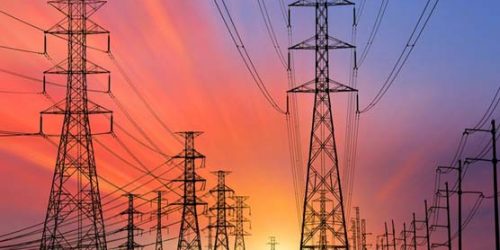ISLAMABAD:
The government on Thursday set up an implementation committee to convert legally non-binding understandings with 47 independent power producers into legal agreements to secure an estimated amount of Rs836 billion in savings over the next 28 years.
After a formal revision in power purchase agreements, the federal government would save an average of Rs30 billion a year during this period.
The decision to form the implementation committee was taken by the Cabinet Committee on Energy (CCoE), chaired by Federal Minister for Planning and Development Asad Umar.
The Power Division proposed setting up the committee, endorsed the memorandum of understandings (MoUs) signed with the IPPs and chalked out the action plan, government functionaries told The Express Tribune.
The cabinet committee approved the MOUs signed with the 47 power plants and the action plan for securing Rs836 billion in benefits.
An official handout issued by the planning ministry read that the CCoE reviewed a report prepared by another body formed negotiating with the IPPs.
The chairman of the committee, Babar Yaqoob Fateh Muhammad, presented its findings, the highlights of the MoUs inked with the IPPs and its recommendations to the CCoE.
The ministry added that the CCoE had discussed various facets of the MoUs and their implementation.
“An initial estimate of potential savings was also presented to the CCoE” the handout read. An implementing committee under the chairmanship of the energy minister was formed to pursue the finalisation of the agreements based on the MoUs and develop an implementation roadmap.
The CCoE will regularly review the progress of the committee.
The other members of the committee are Federal Land Commission of Pakistan Chairman Babar Yaqoob Fateh Muhammad, Special Assistant to the PM on Power Shahzad Qasim, the power and finance secretaries, the chief executive officer of the Central Power Purchasing Agency Guarantee Limited and Barrister Qasim Wadood.
In August last year, the government had set up the committee to look into the issues being faced by the power sector and suggest a way forward.
The government’s negotiation committee had a mandate to renegotiate terms with the IPPs being established under before and under 1994 policy, 2002 policy and 2006 renewable energy policy including bagasse plants being setup under the 2013 co-generation framework.
The IPPs being set up under the 2015 policy, mainly the China-Pakistan Economic Corridor (CPEC) energy projects, were not part of the negotiation committee’s mandate.
The IPPs negotiation committee has so far signed 47 MoU, which, if implemented, could help save Rs836 billion over the remaining life of these projects.
The MoUs are legally non-binding documents and only show intentions. These have to be converted into legally binding documents.
The government expects Rs62 billion in savings from the change of terms of the HUBCO power plant set up before the 1994 policy. The project’s remaining life is seven years and the savings will be secured due to the decoupling of dollar-based return and 11% reduction in fixed operation and maintenance cot of the project, the CCoE was informed.
Under the 1994 policy, seven MoUs have been signed, which the committee expects would result into savings of Rs92 billion during the remaining contract period of six to ten years of these projects. Both the sides have agreed to reduce capacity payments and variable operation and maintenance cost by 11%. The dollar-pegged returns have also been ended.
The maximum savings of Rs322 billion have been estimated due to revision of terms of 12 power plants being setup under the 2002 policy. The shelf life of these projects is from 12 years to 21 years.
The parties have agreed to reduce return on equity to 12% but the US dollar-based returns for foreign investors would continue. For local investors, there will be a 17% return on equity on the basis of Rs148 to a dollar rate with no further indexation with dollars. The parties have also agreed on claw-back mechanism for fuel and operation and maintenance cost, which was not included in the projected Rs322 billion savings.
It has been principally agreed among the parties to recover the excess amount from these IPPs, being worked out by Mohammad Ali committee report.
The government has also estimated Rs206 billion savings on account of redefining terms of 2006 power plants being fired by wind and solar energy. There are 19 power projects that have remaining life span of 12 to 19 years.
For the 2006 policy plant, it has been agreed to reduce the dollar-based return on investment to 13%. The insurance cost has also been reduced to 0.7% of the engineering procurement and construct mod cost. The operational and maintenance cost is also agreed to be reduced in the range of 15% to 25% through the support of the government. It has been agreed to reduce tariffs by 50% above the agreed benchmark.
MoUs have also been signed with eight IPPs set up under the 2013 policy. The remaining life span of these projects is from four to 28 years and the government expects Rs154 billion savings.
For the 2013 policy plants, it has been agreed to reduce the dollar-based return on equity to 12% for next five years and then these investors will be allowed to claim rupee-based return of 17% with dollar indexation at Rs168. The insurance cost has also been agreed to be reduced to 0.7% and the operation and maintenance cost has been reduced by 10%. The past excess payments will be recovered from these plants.





